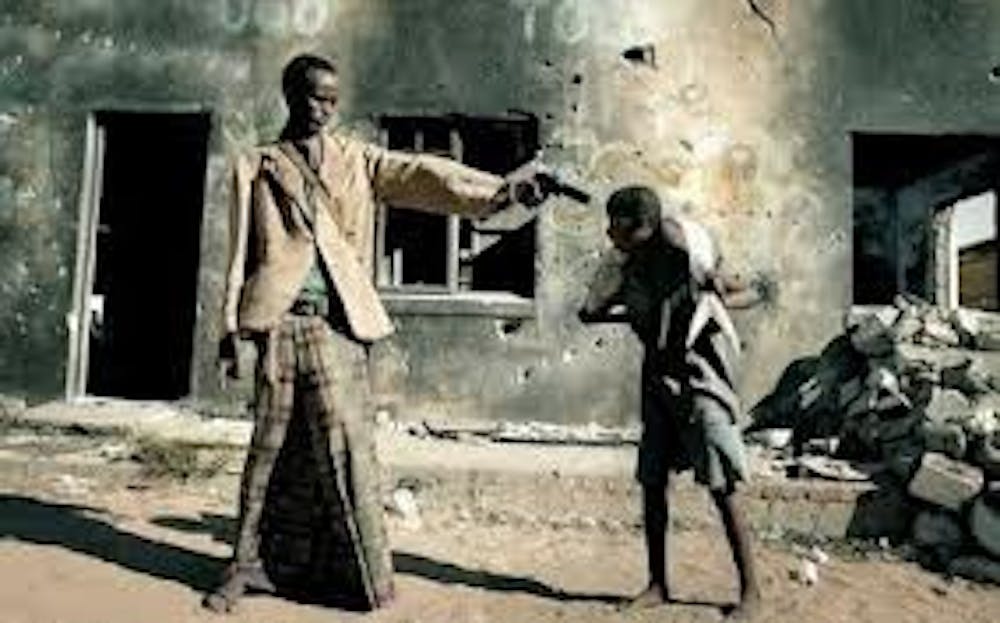Asad is an undeniably charming film that casts a whimsical, hopeful light on a place wrecked by devastation. The big gimmick here is that every actor featured is a real Somali refugee—so, although the acting is laughably bad (one dialogue scene between the titular protagonist and an old fisherman must have been learned phonetically), there is a believable authenticity to the way the film portrays daily life in Somalia. Moreover, it is a welcome dose of levity in a crop of death–obsessed films, and boasts a twist ending that is truly surprising.
Grade: B+
Death of a Shadow
In a mere twenty minutes, Death of a Shadow creates a wildly original world—and better yet, manages to make it convincing. It follows World War I soldier Nathan (Rust and Bone’s Matthias Schoenaerts), now a ghostly photographer whose eternal punishment is to capture the shadows of people right at their moments of death, as he tries to find his way back to the mortal world and back into his true love’s heart. Despite this complex plot, Death of a Shadow pulls you in effortlessly—no thanks to the fantastical steam–punk setting, unforgettable imagery, and devastating acting. Writer and director Tom Van Avermaet truly uses film as a visual medium, and even with sparse–to–nonexistent dialogue is able to explore the intricacies of life, death and love.
Grade: A
Buzkashi Boys
You’ve seen Buzkashi Boys before. It was called The Kite Runner. Both are tales of two young friends in Afghanistan who have big dreams but little hope—replace the latter’s kite with the national horse–racing sport of “buzkashi,” and you have two films that are near identical in pacing, plot and character. In fact, nearly every “coming–of–age” film contains the same beats as Buzkashi Boys: The Outsiders, Stand By Me, and Oliver!, just to name a few. But perhaps the biggest problem with Buzkashi Boys—ignoring the glaring unoriginality—is that it tries too hard to be a “great” movie. Sweeping shots, poignant dialogue and swelling orchestration mean nothing when you can predict the twists before the film even starts.
Grade: B-
Henry
If you are looking for some top–notch pretentious melodrama, look no further than Henry. Canada’s entry for the short live action film category relies too heavily on its heavily loaded premise—that is, a man with a degenerative disease slowly loses touch with the real world. Amour achieves the emotional complexity and universal pain of death that Henry strives for with much more subtlety, grace and success. With over–the–top acting, contrived scenarios and manipulative screenwriting, Henry tries to force its way into your heart. Don’t let director Yan England’s self–quote at the end fool you: there is no real emotion behind Henry’s tears.
Grade: C-
Curfew
Shawn Christensen’s Curfew is a fun dark comedy elevated by excellent performances. It centers on suicidal Richie (played by Christensen), who is forced to babysit his 9-year-old niece, Sophia (Fatima Ptacek). The plot here is secondary, though; rather, it is the wholly believable relationship between Richie and Sophia that drives the film. The film exudes wit, charm and humor, and is as self–deprecating about the conventions of its genre as it is about the characters themselves. Ptacek is a standout—she fully inhabits the precocious Sophia with a screen presence usually reserved for adults.
Grade: A-

